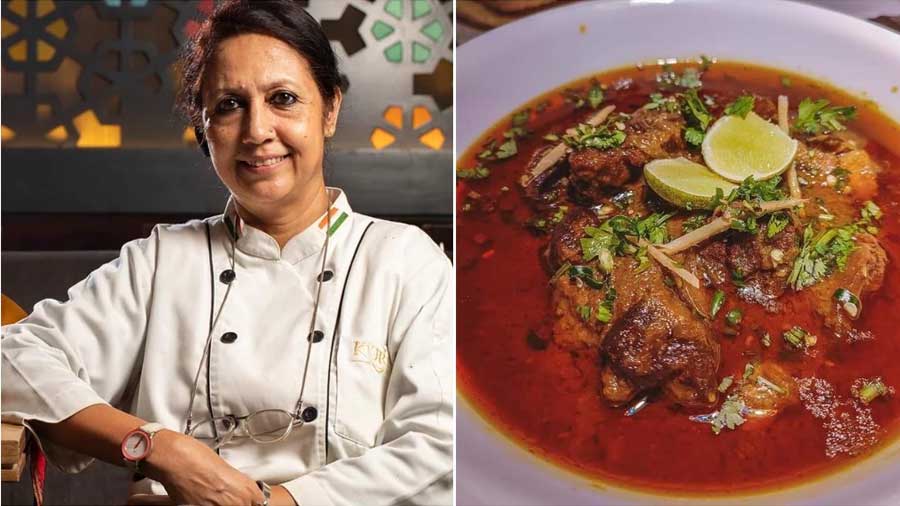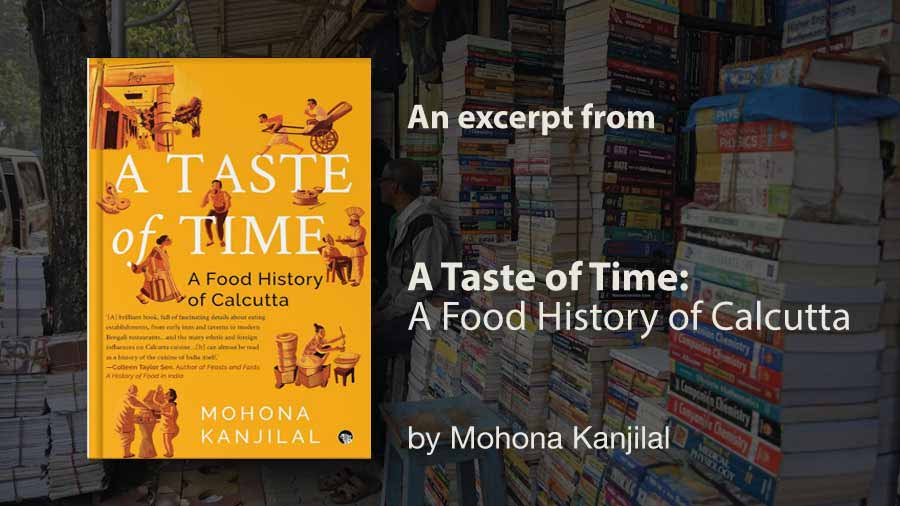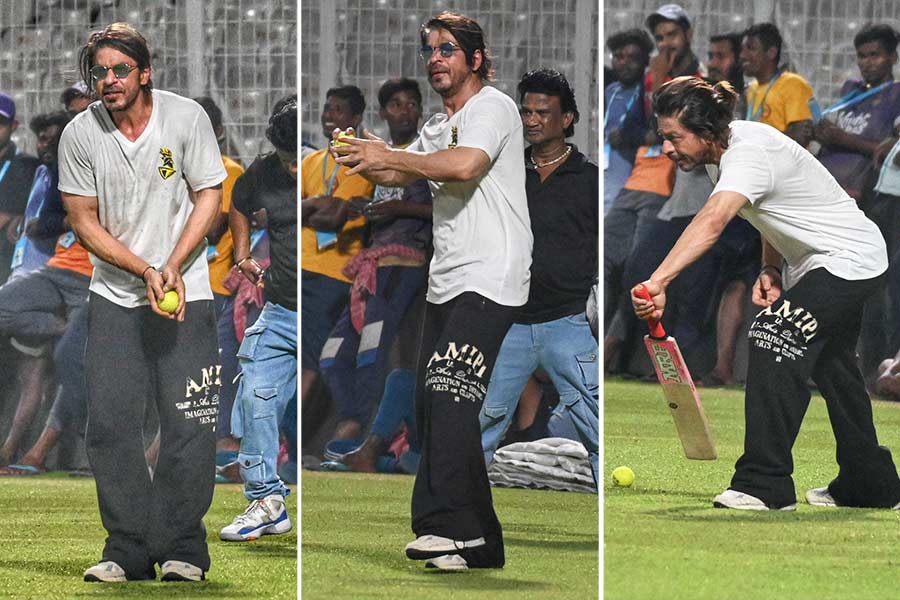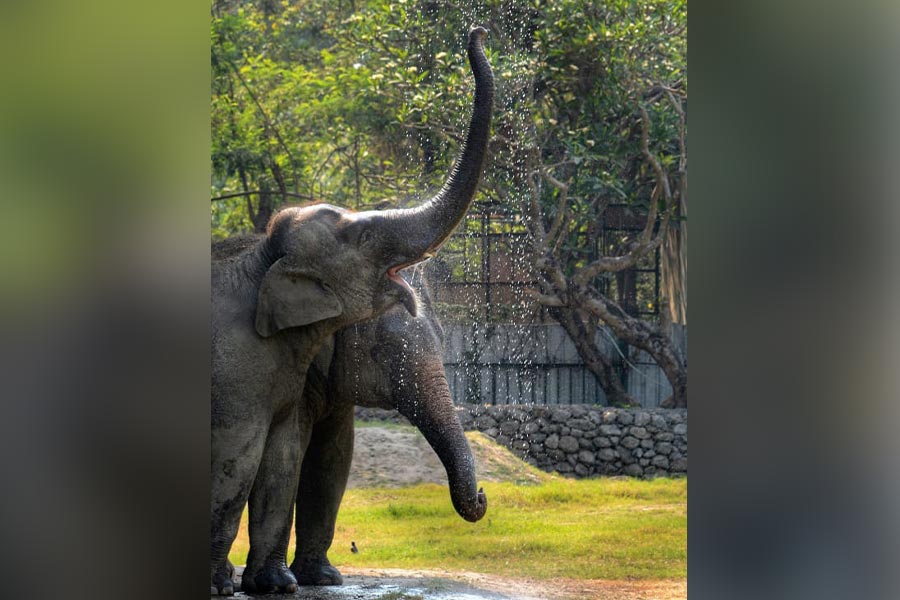Popular history suggests that the potato was introduced to the ‘Calcutta’ biryani to scale down the amount of meat, since the exiled Nawab Wajid Ali Shah had to cut down on his indulgences after moving base from Lucknow to Kolkata’s Metiabruz. Another argument suggests that the potato was added owing to its exotic value, as the Portuguese import was considered a prized ingredient at that time.
Irrespective of the objective, this addition helped scale down the meat-to-rice ratio, making the biryani lighter and more nuanced. However, Manzilat Fatima, Wajid Ali Shah’s great-great-granddaughter believes this culinary legacy lived on not due to an ingredient switch, but because Kolkatans associate food with sentiments and legacies.
“I don’t think I would have gotten such an overwhelming response on my food and heritage anywhere else in the country. It happened because we Bengalis are emotional. We are very attached to our history and culture, which makes me sentimental as well,” shares Fatima, who runs the home diner, Manzilat’s, from her Kasba residence.
The ‘khandani’ Awadhi element…
While biryani is available in every corner of Kolkata, Manzilat’s offers the three main variations of this famed rice-and-meat dish that have their roots in Awadhi cuisine – Lucknowi Awadhi Biryani, Calcutta Awadhi Biryani and Yakhni Pulao.
“These three dishes are characteristically different from one another – from the preparation to the aroma and taste. I’ve included these in my menu to make sure people can understand the difference between each of these,” explains Manzilat.
She prides herself for introducing Awadhi delicacies like Yakhni Pulao and Ulta Tawa Paratha to the city, along with the ever-popular mainstay, the Galawati kebab.
“Kebabs have many different variations in this cuisine and it is distinguishable by the adjectives used before them. The word galawati comes from the word galawat, which means to tenderise. This gives the kebab its unique melt-in-the-mouth consistency. Spices are added to the raw meat and mixed before forming patties and frying them,” describes Manzilat.
“These authentic Awadhi recipes were never written, it has been passed down to me by my family through the kitchen. I like it to be called Khandani Awadhi, because I have grown up eating this cuisine and a lot of the flavours depend on the instinct of the cook,” shares the chef, who characterises her fare as ‘Calcutta Muslim Food’.
Family matters
Fatima’s mother has had a huge influence on her work. Interestingly, she never received a single written recipe from her mother because her culinary education was rather hands-on.
“I lost my mother last year and not a day goes by that I don’t miss her or hear her words echo in my ears when I’m preparing food. I remember going to her for advice, always asking her questions like, ‘Amma, yeh kaise banate hain?’,” recalls Fatima.
She still remembers her mother’s insistence on moderating her spices, so the flavours fill the senses but don’t overwhelm the taste buds. While speaking about the aromas of Awadhi food, Fatima points out how Awadhi food is entirely different from Mughlai food. The latter is brighter, greasier and heavier on the stomach. While Awadhi food is all about flavour and texture, along with a focus on rich aromas that come from the use of nutmeg and mace, which when used sparingly, can produce almost floral notes.
“Everyone’s favourite biryani is not actually of Mughlai origin. It is part of Awadhi cuisine, because the biriyani we get in restaurants now is a ‘Calcuttan’ rendition of Lucknow’s Awadhi food,” Fatima explains.
The chef also broke down how the Mughlai food served in Kolkata is a loose interpretation of what was made in the Nawab’s kitchen all those years back. After the Nawab’s death, his royal chefs dispersed to different parts of the state, carrying on his legacy which was then adapted in different ways and resulted in the cuisine that’s prevalent today.
The recipes that Fatima swears by in her kitchen have been passed down through generations. Centuries of history lie deeply embedded in the food that she recreates for her patrons. But despite its storied links to Bengal’s heritage, Manzilat’s journey began much like any other home brand.
After hosting numerous pop-ups across the city, Fatima was flooded with requests for a set menu that would let customers order in. In 2017, when she was planning to make Haleem during Ramazan, a few people requested to join in so they could experience the hearty meat stew. This led to her setting up tables on the roof, allowing people to dine at her residence and this set-up became a part of her brand.
“When I started my food journey, it was my goal to make Kolkatans realise that Awadhi food was a part of the city’s own heritage, introduced in Metiabruz by Nawab Wajid Ali Shah,” Fatima tells us.
Past forward…
Fatima tells us about her plans of penning down her family’s culinary heritage to preserve the stories. “I find myself worrying about how to preserve the legacy of my family’s heritage and food. I do hope I can come around to writing a book about these recipes so that they never get lost because this cuisine is an integral part of not just my family, but of the city’s heritage as well,” she shares.
The chef shared with us two priceless anecdotes that motivate her to keep going.
“One of the best compliments I have ever received was from my father. As we were dining together one night, he tasted my food and said, ‘Manzilat ko ab khana pakana aa gaya hain’ (Manzilat has now learnt how to cook),” shares Fatima with a smile.
She continues, “A few months before my mother passed away, I had prepared her favourite Pasanda Kebab. She tasted it and said, ‘Areey, tumne toh hume hamare bachpan ki yaad dila di’ (Wow, you reminded me of my childhood).”
The recipes that the chef treasures are not merely directions to prepare some delicacies, but memories that have travelled through generations. They don’t just help recreate the food that Nawab Wajid Ali Shah had cherished, but also carry with them an important slice of history. This is also what makes dining at Manzilat’s home diner so very unique.
Dine in at Manzilat’s at Plot-I, Phase-III Kasba Industrial Estate, Kolkata 700107, or order take-away on +91 9432913204.







